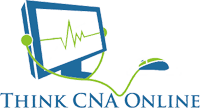After completing schooling and passing the challenging NCLEX-RN examination, you have finally have your RN Degree and have entered into the realm of a working Registered Nurse. While this is an exciting time, diving into the complex and fast-paced world of medical clinics proves difficult for even the most skilled RN. So, how can you make sure these first few months and years are as successful and productive as possible?
The answer, while it may seem simplistic, is preparation. Much like during your training program, your overall success is directly linked to how well you prepare for both the known and unknown. Even though this is a dynamic and constantly changing work environment, there are several tips that can help make the transition from aspiring nurse (or perhaps a CNA), to fully licensed (and employable) Registered Nurse is easier if you follow a few pieces of advice.
You Have Your RN Degree and Landed Your First Job, Now What?
So now that you have obtained your RN Degree, and been hired for your first full-time job as a Registered Nurse, it’s important to hear some tips on how to assimilate into your new work environment and schedule.
Shift Work – Acclimating to Your New Life
Regardless of who you are, the transition from being a full-time student to working 12 hour day or night shifts is a significant challenge. As you prepare to enter the workforce, spend as much time as necessary researching both the physical and mental impact of this type of work. It’s important to discuss your needs with friends and family members. Take as much time as you need to make the social and personal adjustments to your new lifestyle. Always reach out to fellow nurses, or hospital support systems, to help make this transition as seamless as you can.
Prepare for Making Mistakes – Don’t Fear Accidents
One of the biggest mistakes you can make is assuming you won’t make any mistakes. While you should strive to do your best, as a newly licensed Registered Nurse, you’re bound to mess up. Once you acknowledge this inevitability, you’re better prepared to handle these mistakes and learn from them. Avoid setting unrealistic goals. Understand that you’re only human, albeit, a well-trained and extremely capable human. Figure out how you will approach your future mistakes so that you learn and grow, rather than beat yourself up and criticize your talent.
Study Charting System Characteristics
One of the first steps you should take when you begin work is studying the charting system. As you’ll uncover, the key to maximizing your impact is refining your overall efficiency. Charting is a task that you’ll perform time and time again. Therefore, the most familiar you are with their specific charting protocol, the more efficient you’ll become. While the majority of modern charting systems are electronic, learn how to navigate both the digital and physical charting protocol established by your employer. Treat this as you would any subject in school.
Solidify Your Personal Routine – Create Familiarity
As you may already know, each shift will be different. Unfortunately, most people truly thrive only when they have a standard, unwavering routine. While this is a truth for many, the work environment and scope of practice of a Registered Nurse creates a slew of uncertainty. Therefore, it’s imperative that you spend time creating workplace familiarity by establishing a routine whenever possible.






